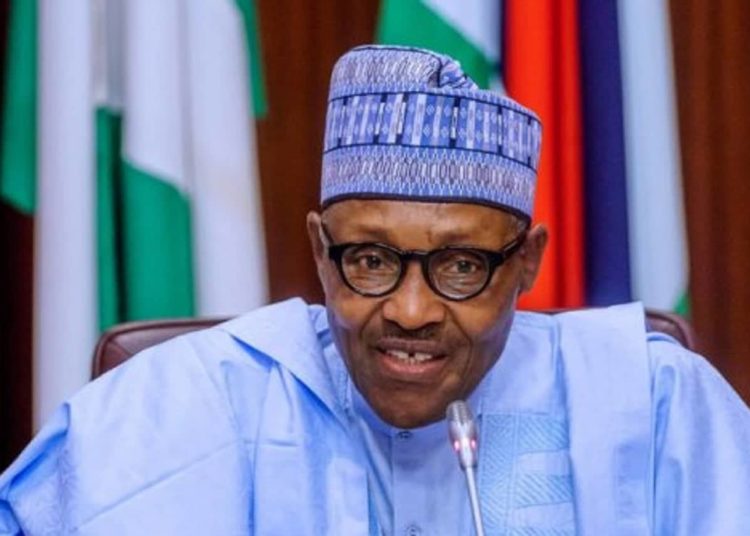To reel out areas of successes of President Muhammadu Buhari-led administration, the Ministry of information and Culture as part of an overall programme to showcase and document the numerous achievements of the federal government launched a scorecard series in October 2022.
The federal government had earlier said that the indelible legacies of President Buhari’s administration in terms of food security and the scaling up of made-in-Nigeria products are largely downplayed.
In an opening remark, the minister of Information and Culture, Alhaji Lai Mohammed said the federal government has over the years been highlighting its achievements via numerous channels, but as the Administration winds down, they believe it’s very important to consolidate its efforts at showcasing these achievements. Hence, he said his Ministry designed several programmes, including the series tagged: Scorecard Series (2015-2023).
In the words of President Muhammadu Buhari: “This administration has implemented high-impact projects across the length and breadth of the country that meets the yearnings and aspirations of Nigerians. And this is in recognition of the importance of critical infrastructure in economic development and the quest of this Administration to leave a lasting legacy.
“Subsequently, you will hear from more Ministers and other top government officials about the strides in their various ministries and sectors, including transportation, social investment programme, economy, communications and digital economy, power, petroleum
industry, defence, health, agriculture, youth and sports, trade and investment, fight against corruption, water resources, aviation, and justice, just to mention a few.”
In the din of politicking, naysayers he said there were attempts to play down the massive and unprecedented achievements of the current administration, however, he said despite attempts in some circles to downplay the achievements of the current Administration has no scintilla of doubt that history will be fairer and posterity will be kind to us.
“Those whose trips have been shortened and smoothened by good roads and bridges will remember those who built those roads and bridges; those who use the modern terminals at our airports will remember who built them. Those who ride on modern
trains along Lagos-Ibadan, Abuja-Kaduna, and Itakpe-Warri will not forget those who made that happen. And the 9.8 million school children who are fed daily, the 1 million youth that have been empowered as well as the 500,000 who are undergoing training under the N-Power, and the 1,632,480 households that have been enrolled in the Conditional Cash Transfer Programme will not forget.”
In his presentation, the minister of Works and Housing, Babatunde Fashola, announced the completion of the Second Niger Bridge.
He, however, said connecting roads to the bridge are still under construction.
The minister explained the reason why the Federal Government opted for the SUKUK bond.
He said SUKUK helped to fund road construction across the country.
According to Fashola: “Second Niger Bridge is completed. What is remaining is a 4km interchange road at the Asaba end and 2km out of a 7km link road at the Onitsha end.
“The first thing we did when we came into power was we expanded our budget on road infrastructure, sought alternative sources of funding through SUKUK, Infrastructure Tax Credit Scheme.”
Fashola also listed the achievements of his ministry under Buhari’s government.
The minister said 12 road projects covering about 896km have been completed, commissioned, and handed over to their communities.
Fashola said the government is executing 83 road rehabilitation projects in federal tertiary institutions across the country with 66 projects completed and 46 commissioned.
In his part, the minister of Transportation, Mu’azu Jaji Sambo rated President Buhari high while reading the scorecard of the President on what he described as “Strategic interventions” designed in the transportation sector.
The Minister said President Buhari-led’s administration recognised the role of Transportation in socio-economic development and identified it as the fourth of the nine priority areas of his administration.
“The President Muhammadu Buhari-led Administration has made giant strides in bridging the infrastructural deficit in the transportation sector.
“This includes the railway modernization programme, the deep sea ports development programme, the inland dry port initiative, job creation, and introduction of favourable policies to mention but a few.
“The sector is far from perfect, but the interventions on ground will serve as a veritable template for the incoming administration to build upon,” he added.
Minister of Aviation, Senator Hadi Sirika, at the 3rd edition of the town hall series said that all the road maps outlined for the aviation sector would be completed by April 2023 and an estimated 72,300 jobs would be created.
Sirika said 9,100 of the jobs in the sector are direct while 63,200 are indirect jobs. According to him, “By April 2023, all the road maps outlined for the sector by the Minister of Aviation, Senator Hadi Sirika, would have been completed.
The attainment level is currently at 90 per cent. Upon the full implementation of the roadmap, it is estimated that 72,300 jobs (Direct 9,100 and
Indirect 63,200) will be created” the Minister said.
Senator Sirika further stated that capacity building has been ramped up, with the President Buhari’s administration increasing the budget for training from $500,000 when the administration came into the office to $8 million.
On his part, the minister of Interior, Rauf Aregbesola, said the biggest achievement of the President Buhari administration is its tackling of insurgency.
Aregbesola said the administration had successfully stopped insurgents from building strongholds, occupying territories, and collecting taxes from the people as was the case before it took over.
“There is no insurgency stronghold anymore in Nigeria and that is the biggest achievement as you might want to understand it.
“Most people conveniently overlook the fact that at the advent of this administration in 2015, local governments in their numbers were under the occupation of insurgents,
“But today, there is no single inch of Nigerian soil under the control of insurgents.
”This is the biggest achievement in terms of internal security,’’ he said.
The minister of Agriculture and Rural Development, Dr. Mohammad Mahmood Abubakar, said the agricultural sector contributed 23.2 per cent to the nation’s GDP as at 2nd Quarter of 2022.
He said via the Presidential Fertilizer Initiative which was established in 2016 the number of fertilizer plants increased in the country from 8 to 200, the annual fertilizer production rose from 300 metric tonnes per annum to over seven million metric tonnes.
He noted that there has been a paradigm shift in the Agric space because of President Buhari’s vision to redirect the economic trajectory of this country by diversifying into the agricultural sector.
“The Ministry constructed and handed over Agribusiness Incubation centres for the training of students in various agricultural value chain in the Federal University of Agriculture, Makurdi (Benue State), Umaru Musa Yar’Adua University (Katsina State), University of Ibadan (Oyo State), University of Maiduguri (Borno State), Niger Delta University (Bayelsa State) and University of Abuja (FCT). The project is ongoing
in the Federal Universities of Lokoja and Umudike.
“There is an ongoing construction of 10 large-scale integrated rice mills with 320 metric tonnes capacity per day in 10 locations, namely Jigawa, Kano, Adamawa, Niger, Kaduna, Gombe, Ekiti, Ogun, Bayelsa
and FCT.
“We have constructed and equipped Standard Live Bird Markets in some
states of the federation as part of the strategy for the control of
Avian Influenza and other poultry diseases,” he said.
More so, the minister of Finance, Budget and National Planning Dr Zainab Ahmed said the nation’s borrowings have been practical, sustainable, and guided by our Debt Management Strategy.
“Our debt is 33 per cent of the GDP, which is still the lowest on the African Continent.
“We don’t have any need to restructure our debt because debt management is on the first line charge and we have not defaulted. We have a projection of meeting our debt through short and medium-term strategies. We are comfortable with our ability to meet our debt.
“Mr. President has been uniquely generous in his financial support
to states. A total of N5.03 trillion plus an additional US$3.4 billion
has been released to states by the Federal Government over the life of this administration.
“We have optimized fiscal incentives to boost productivity in critical sectors, including Agriculture, Solid Minerals and
Manufacturing – The Federal Government has disbursed N528,384,778,445.70 billion and supported a total of 233,974 MSMEs.
Minister of Environment Mohammed Abdullahi said via the Great Green Wall Programme, the Ministry has “recovered arable land in the northern parts of the country from a baseline of 90Ha in 2019 to 6,007 Ha as at 2nd quarter of 2022; Increased the Number of Trees (Orchards, Woodlots) Planted from 1,080,000 to 9,048,900 in 2022.”
He reiterated the mandate of the ministry which includes securing a quality environment conducive for good health and well-being of the citizens, fauna and flora, promoting sustainable use of natural resources, promoting research and development on issues that affect the environment and restoring and maintaining the ecosystem, ecological process, and preserving biodiversity.
The minister of Mines and Steel Development, Olamilekan Adegbite, disclosed that the federal government had commenced payment of $ 496 million in the final settlement of a contractual dispute with Global Steel Group.
He, however, said the plan by the federal government to make Ajaokuta Steel operational had been shattered by COVID-19 and the war in Ukraine.





